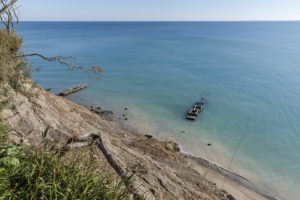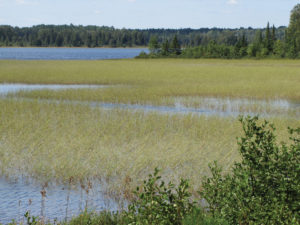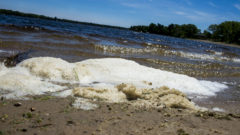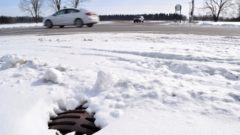Breathing under the ice
Deep winter snow and prolonged ice cover on Upper Peninsula inland lakes can create conditions that present unique habitat challenges to fish. Staffers from the Michigan Department of Natural Resources Fisheries Division annually survey lakes in late winter to determine if habitat variables are suitable for survival of fish stocked. Read the full story by the Iron Mountain Daily News.
Great Lakes Commission
https://www.glc.org/dailynews/20210219-breathing-ice







